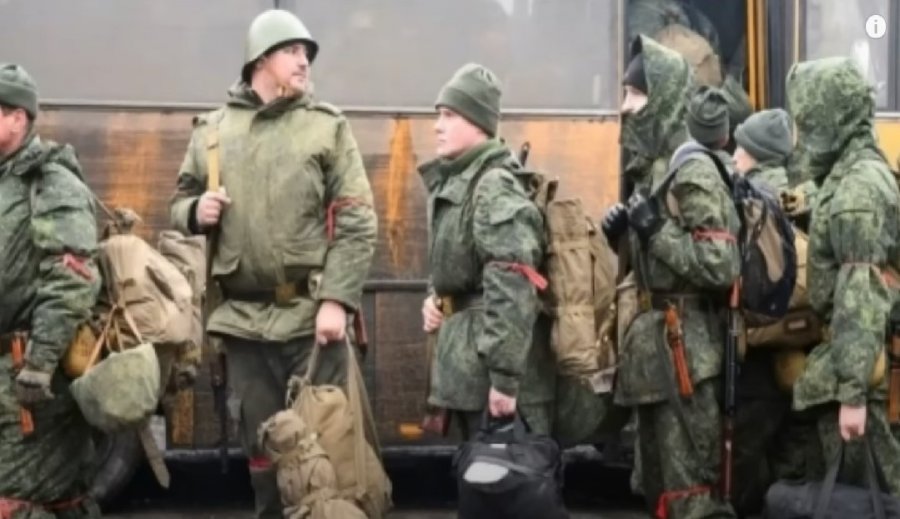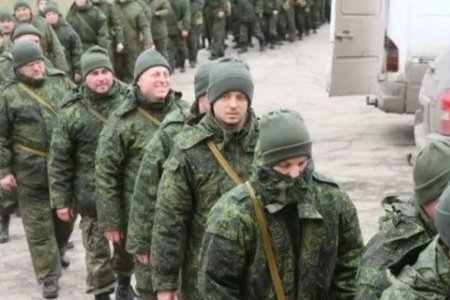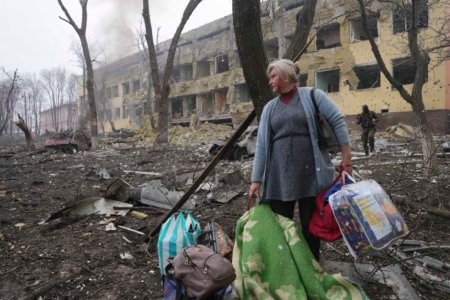
It is not just the deaths of civilians and destruction of entire cities that make Russia’s claim that it is seeking to ‘liberate’ Donbas such a cynical lie. Since the beginning of its full-scale invasion, Russia has been rounding up men in Donbas and sending even those with evident medical conditions to fight and, more than likely, be killed fighting its war against Ukraine. Since the fate of these men does not need to be recorded, Russia treats both them and their families with particularly callous disregard, and may be about to use the same forced mobilization in parts of the Kherson and Zaporizhzhia oblasts currently under its occupation.
On 14 June, the wives of a number of men from the Russian proxy ‘Donetsk people’s republic’ [‘DPR’] issued an emotional appeal, saying that they had not heard from or about their husbands since the later were ‘mobilized’ (taken away from their places of employment) on 24 February 2022. They were added to an artillery unit (No. 08801) and taken away without any explanation then of their destination. Since then, their wives have tried desperately to find out where they are and even whether they are alive, with no success. Nobody within the so-called ‘DPR’ will give them any answer. The main spokeswoman says that they had received information that the men were supposed to be returned to the unit on 6 June. However, only one, fourth, unit from the entire regiment came back, and nobody is telling them where the other, 200, men are.
She adds that 50% of the men were clearly in a bad physical state, but that there had been no medical commission (and, therefore, no examination) and all had been sent regardless of this.
There have also been several video appeals from men who were forcibly mobilized, including one rather sad appeal “to [Russian leader] Vladimir Vladimovich Putin” from men who have been sent to the frontline in the Kherson oblast. Not only were they assured that they would not be sent to the frontline but were, despite having no training, but they are also being kept without sufficient food, and without any medical care or medicines. A large number of the men have medical reasons why they should never have been mobilized, but they confirm that no medical examination was carried out.
It was only in the second half of April that the proxy ‘republics’ openly admitted to cancelling medical examinations of those they planned to mobilized, however it is clear from the above appeals that no attention was paid to whether the men forcibly taken from their work or, sometimes, simply seized on the street were in a fit state to be sent to fight.
It was clear from the beginning of Russia’s full-scale invasion that Ukrainians from occupied Crimea and Donbas were in immediate danger of being sent to fight other Ukrainians. Since the second half of April, there have been more and more reports indicating that the Russians were using the same tactics against the residents of parts of the Zaporizhzhia and Kherson oblasts, as well as of Donbas, which had temporarily fallen under Russian occupation. Men from Popasna in Luhansk oblast, which has been under Russian occupation since 8 May, are reported to have been forced, effectively at gunpoint, to take up arms against other Ukrainians. Medical staff have also been taken by force from Mariupol and other places, seized by the Russians.
Former Ukrainian Deputy Prosecutor General Gundyuz Mamedov reported on 16 June that there is still further evidence that the Russians are claiming to be forming ‘voluntary battalions’ in the occupied parts of Zaporizhzhia oblast. Any forced mobilization, Mamedov stresses, is a violation of Article 51 of the Fourth Geneva Convention. This states that: “the Occupying Power may not compel protected persons to serve in its armed or auxiliary forces. No pressure or propaganda which aims at securing voluntary enlistment is permitted”.
It is clear that even voluntary involvement would breach international law, however the methods used in occupied Donbas, where men were seized at work, at the market or on the street, make it quite clear why such claims of ‘voluntary’ engagement cannot be believed.
It is imperative that Ukrainians faced with forced conscription or mobilization realize that they will be viewed as victims of Russian war crimes, but they should formally surrender as soon as is possible.



